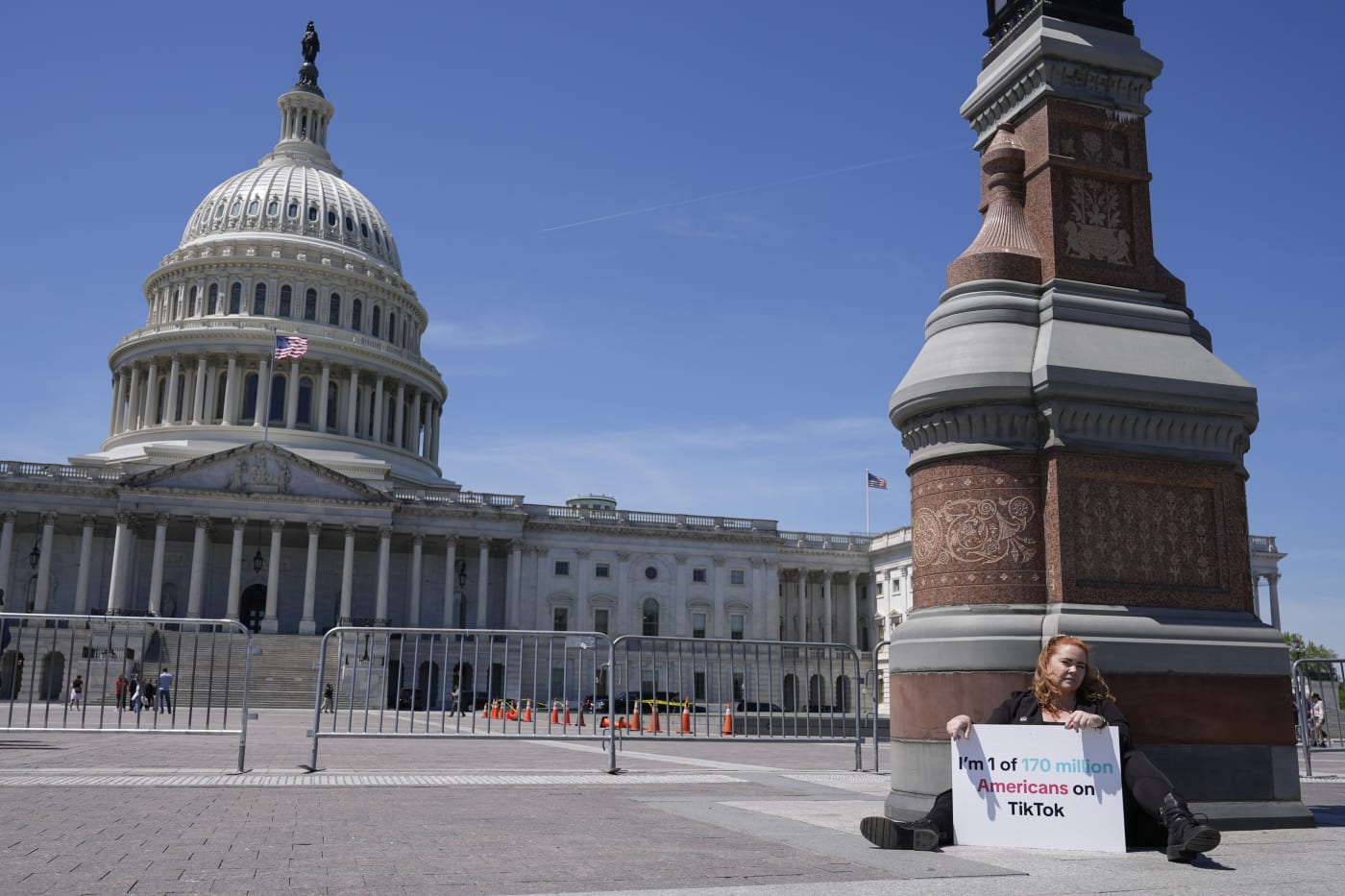Senate passes bill that could ban TikTok
A bill that could ban TikTok is now all but certain to become law. The Senate approved a measure that requires ByteDance to sell TikTok or face a ban, in a vote of 79 - 18. The “Protecting Americans from Foreign Adversary Controlled Applications Act,” will next head to President Joe Biden, who has said he would sign the bill into law. While it’s far from the first effort to force a ban or divestment of the social media app, the bill managed to draw far more support than previous attempts. The bill was introduced in March and sailed through the House of Representatives with overwhelming bipartisan agreement. A slightly revised version was approved as part of a package of foreign aid legislation on Saturday. Under the updated terms, TikTok would have up to 12 months to divest from parent company ByteDance or face a ban in US app stores and web hosting services. The company has called the bill unconstitutional and indicated it would mount a legal challenge to such a law, which could further delay an eventual sale or ban. The company didn't immediately respond to a request for comment. TikTok has long been viewed with suspicion by lawmakers and the intelligence community. Ahead of votes in the House and Senate, members of Congress were briefed by intelligence officials on the alleged national security threat posed by the app. The exact nature of those concerns is still unclear, though some members of Congress have asked for details from the briefings to be declassified. At the same time, some lawmakers have expressed skepticism, saying that the alleged threat posed by TikTok is largely hypothetical. Free speech and digital rights groups also oppose the bill, noting that comprehensive privacy legislation would be a more effective way of protecting Americans’ personal data. TikTok CEO Shou Chew has made a similar argument, telling Congress last year that a forced sale wouldn’t resolve data concerns about the app. But TikTok’s recent efforts to muster opposition to the bill may have backfired. Lawmakers rebuked the company for sending in-app notifications to users about the bill after the alerts resulted in a flood of calls to Congressional offices. And the app may have drawn even more suspicion when Politico reported last week that Chinese diplomats were lobbying Congressional staffers to oppose the bill. Officials in China have condemned the measure. A Chinese law, passed in 2020, could prevent ByteDance from including TikTok’s recommendation algorithm in a sale of the app.This article originally appeared on Engadget at https://www.engadget.com/senate-passes-bill-that-could-ban-tiktok-014124533.html?src=rss

A bill that could ban TikTok is now all but certain to become law. The Senate approved a measure that requires ByteDance to sell TikTok or face a ban, in a vote of 79 - 18. The “Protecting Americans from Foreign Adversary Controlled Applications Act,” will next head to President Joe Biden, who has said he would sign the bill into law.
While it’s far from the first effort to force a ban or divestment of the social media app, the bill managed to draw far more support than previous attempts. The bill was introduced in March and sailed through the House of Representatives with overwhelming bipartisan agreement. A slightly revised version was approved as part of a package of foreign aid legislation on Saturday.
Under the updated terms, TikTok would have up to 12 months to divest from parent company ByteDance or face a ban in US app stores and web hosting services. The company has called the bill unconstitutional and indicated it would mount a legal challenge to such a law, which could further delay an eventual sale or ban.
The company didn't immediately respond to a request for comment.
TikTok has long been viewed with suspicion by lawmakers and the intelligence community. Ahead of votes in the House and Senate, members of Congress were briefed by intelligence officials on the alleged national security threat posed by the app. The exact nature of those concerns is still unclear, though some members of Congress have asked for details from the briefings to be declassified.
At the same time, some lawmakers have expressed skepticism, saying that the alleged threat posed by TikTok is largely hypothetical. Free speech and digital rights groups also oppose the bill, noting that comprehensive privacy legislation would be a more effective way of protecting Americans’ personal data. TikTok CEO Shou Chew has made a similar argument, telling Congress last year that a forced sale wouldn’t resolve data concerns about the app.
But TikTok’s recent efforts to muster opposition to the bill may have backfired. Lawmakers rebuked the company for sending in-app notifications to users about the bill after the alerts resulted in a flood of calls to Congressional offices. And the app may have drawn even more suspicion when Politico reported last week that Chinese diplomats were lobbying Congressional staffers to oppose the bill. Officials in China have condemned the measure. A Chinese law, passed in 2020, could prevent ByteDance from including TikTok’s recommendation algorithm in a sale of the app.This article originally appeared on Engadget at https://www.engadget.com/senate-passes-bill-that-could-ban-tiktok-014124533.html?src=rss
What's Your Reaction?





















































